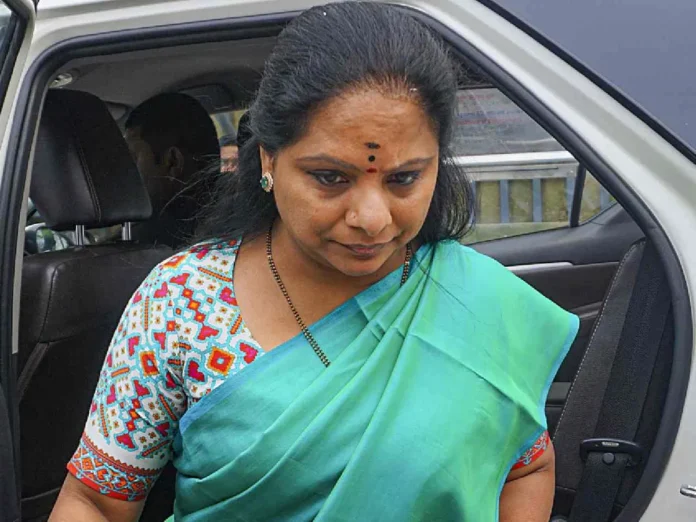Delhi court has dismissed the bail plea of BRS (Beverage Retailers’ Association) leader K Kavitha in connection with the Excise Policy case, where she faces allegations of financial irregularities. The decision comes amidst mounting pressure from investigating agencies, including the Enforcement Directorate (ED) and the Central Bureau of Investigation (CBI), which have been probing the matter with meticulous scrutiny. The court’s ruling not only underscores the gravity of the charges against Kavitha but also signals a deepening legal quagmire surrounding the controversial Excise Policy.
The Excise Policy case has been a focal point of controversy, drawing attention to alleged malpractices and corruption within the beverage retail sector. Kavitha’s role as a prominent leader of the BRS has placed her under intense scrutiny, with investigators accusing her of orchestrating schemes to manipulate the policy for personal gain. The allegations, ranging from financial impropriety to money laundering, have cast a shadow over her reputation and raised serious questions about the integrity of the industry she represents.
The decision to deny bail to K Kavitha reflects the court’s assessment of the gravity of the charges against her and the potential risk of tampering with evidence or influencing witnesses if released. The ED and CBI, which have been spearheading separate investigations into the case, have presented compelling evidence linking Kavitha to illicit financial transactions and irregularities in the implementation of the Excise Policy. The court’s ruling underscores the need for a thorough and impartial examination of the allegations before any consideration of bail can be entertained.
The ED and CBI have been relentless in their pursuit of justice, leaving no stone unturned in their quest to unravel the truth behind the Excise Policy case. Their investigations have unearthed a web of complex financial transactions and questionable dealings, implicating not only K Kavitha but also several other influential figures within the beverage retail industry. The inter-agency cooperation and coordination in this case reflect a concerted effort to combat corruption and uphold the rule of law.
The denial of bail to K Kavitha sends a strong message that those accused of financial wrongdoing will be held accountable for their actions, regardless of their stature or influence. It also serves as a reminder to individuals occupying positions of authority that they are not above the law and will be subject to the same legal scrutiny as any other citizen. The court’s decision reaffirms the principle of equality before the law and reinforces public confidence in the justice system’s ability to deliver impartial verdicts.
The Excise Policy case has broader implications beyond the immediate legal proceedings, shedding light on systemic flaws and vulnerabilities within the regulatory framework governing the beverage retail sector. The revelations of corruption and malpractices have prompted calls for sweeping reforms to enhance transparency, accountability, and oversight in the industry. Stakeholders, including government agencies, industry associations, and civil society organizations, must work together to address these issues and restore public trust in the integrity of the sector.
As the legal battle surrounding the Excise Policy case intensifies, it is imperative for all parties involved to uphold the principles of due process and fair trial. The ED and CBI must continue their investigations with diligence and impartiality, ensuring that all evidence is thoroughly scrutinized and all relevant facts are brought to light. Likewise, K Kavitha and her legal team have the right to mount a robust defense and present their case in accordance with the law.
In addition, the denial of bail to K Kavitha in the Excise Policy case represents a significant development in the ongoing legal saga surrounding allegations of financial irregularities in the beverage retail sector. The decision underscores the seriousness of the charges against her and the determination of investigating agencies to pursue justice. As the case unfolds, it is essential for all stakeholders to uphold the principles of transparency, accountability, and due process to ensure a fair and impartial resolution.

